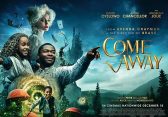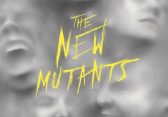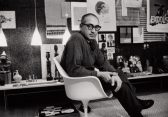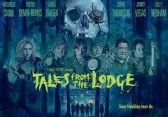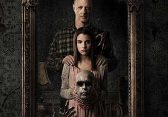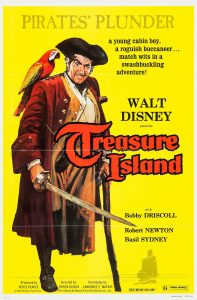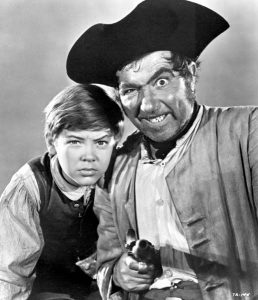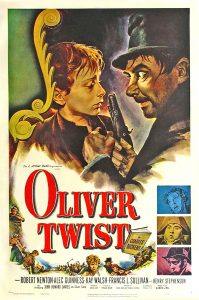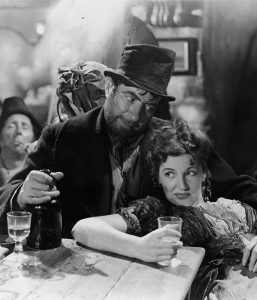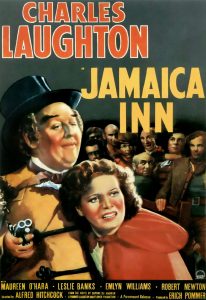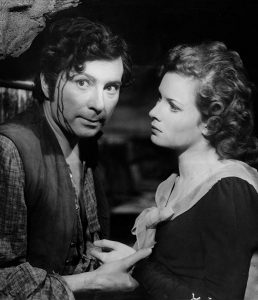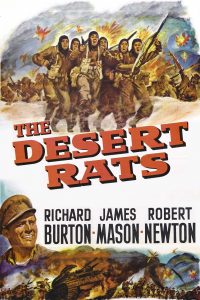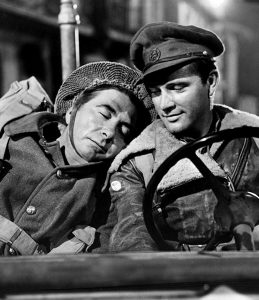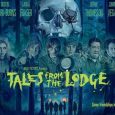As of a couple of months ago, I didn’t know who Robert Newton was. During the over 100 years of cinema history at this point, there have been thousands of actors, male and female, that have come and gone. Whilst the most popular lead actors of yesteryear may have a place in our modern popular culture, the supporting or character actors are reserved for the minds of the cinema enthusiast. The average person with an interest in film can more likely than not, recognise James Dean or Audrey Hepburn. But what about smaller actors like Richard Jenkins, Anthony Dawson or Anne Ramsey? People of past generations may know them and there are certainly cinephiles out there that could recount their extensive credits. But for the average Joe, it’s reasonably safe to assume they would probably recognise their faces but never know their names. They become the befuddled “That guy” or “That woman from thingy”. Robert Newton could be classed among them these days.
This wasn’t always the case, Robert Newton was quite a well-known actor during the 1940s and 50s although he was rarely the lead in films. He was especially popular in Britain amongst teenage audiences and can certainly be considered a big name supporting actor in his day, starring alongside the likes of Alec Guinness, Lawrence Olivier, David Niven, and Charles Laughton throughout his career. More importantly, he always made an impact on his roles whether they be in Britain or Hollywood. No matter how big or small the part, or if the quality of the film was questionable, Newton still managed to bring his natural charisma and talent to the screen. For that, he is still thought of today by a certain generation as one of the finest British character actors to have ever lived. Even though I’m still in the process of discovering him myself, I’m inclined to agree.
Which is why this little piece has been birthed into existence. For those of you who have never seen a film with Robert Newton, we at Review Avenue give you 4 films to get you started on the great actor…
An introduction to Robert Newton
1. Treasure Island (1950)
Treasure Island from 1950 is certainly Robert Newton’s most famous film and his most significant contribution to culture. It’s notable for being the first fully live-action film from Disney and the first adaptation of Treasure Island in colour. It’s also rightly thought of as the definitive film adaptation of the classic adventure story from Robert Louis Stevenson and the best ever incarnation of Long John Silver, brilliantly played by Newton. It’s difficult to believe, but before this film and Newton’s performance as the infamous scoundrel, there wasn’t an archetypical way to talk like a pirate. Newton, in one of his few leading roles, exaggerated his West Country accent and chewed the scenery beyond compare in this timeless adventure film. The rest is history as they say. So whenever you hear someone say “Argh matey, all hands hoay” they’re actually imitating no other than Mr. Robert Newton.
2. Oliver Twist (1948)
Newton appears in David Lean’s classic adaptation of Oliver Twist as the malicious Bill Sikes, a perfect piece of casting that I personally believe hasn’t been topped for the character. It’s often cited that Oliver Reed’s performance of Sikes in the 1968 musical version simply titled Oliver! is the best portrayal of Sikes. But I disagree. Reed (who considered Newton a role model) does indeed deliver a fantastic performance as one would expect, and he certainly applies a more sinister voice compared with Newton. However, Newton’s wild eyes and sporadic outbursts of rage create a much more unhinged character that I personally find more threatening. Concerning Nancy’s death, Reed’s version in 1968 may be more iconic and theatrical, but the horror is held at arm’s length as scenery obscures Bill as he bludgeons Nancy to death. On the contrary, In the 1948 version, we get a huge close up on Newton as he commits murder in a drunken rage, his eyes brimming with a kind of primal, murderous glaze that is utterly unforgettable. Even more disturbing is we see night turn into day and Newton’s Bill is sat with Nancy’s lifeless body and has been for hours. His wild eyes still present except now with a look of fear rather than anger. Superb acting.
3. Jamaica Inn (1939)
Alfred Hitchcock’s last film before moving to America, Jamaica Inn finds Robert Newton uncharacteristically in the role of the hero James ‘Jem’ Trehearne. It’s a strange piece of casting that Newton himself doesn’t appear to be entirely comfortable with onscreen. It’s arguably the blandest role in the film, so it seems a great disservice to give it to such a talented actor. Newton still gives it his all, throwing himself into danger and channeling Errol Flynn in some scenes. But being surrounded by much more interesting and despicable characters like Charles Laughton’s Sir Humphrey Pengallan, Leslie Bank’s intimidating Joss and Maureen O’Hara’s resourceful Mary makes it easy to lose sight of this early Newton role. Still worth a watch despite many labeling it one of Hitchcock’s worst films.
4. The Desert Rats (1953)
The final film in our introduction is one of Newton’s last films. 1953s WWII battle film concerning the Siege of Tobruk in North Africa titled The Desert Rats. Newton plays Tom Bartlett, a former schoolmaster that once taught the film’s protagonist, a young but experienced captain played by Richard Burton. Newton’s Bartlett is a heavy drinker and a self-proclaimed coward but represents the closest thing to a friend for Richard Burton’s pressured captain. Their relationship is the emotional core of the film and their chemistry is clearly highlighted between battle scenes. As Burton becomes more and more disenfranchised with his company’s objective to hold Tobruk, it’s Newton and the rest of the men that become more determined to see it through. It creates a satisfying juxtaposition where Burton supports his despairing men at the beginning, and they support him through the end.
These are just four solid films to get you started on Robert Newton. He has 53 credits to his name, including films, TV shows, and shorts. He tragically died of a heart attack in 1956, aged 50, having suffered from chronic alcoholism for at least 10 years: Something that was much more common in show business back then. But despite his early death, Robert Newton has left a lasting impact on film and popular culture. He was the first pirate to go “Aargh”, 50 years before Captain Jack or Barbossa appeared onscreen and his body of work is something any actor would be proud of.

